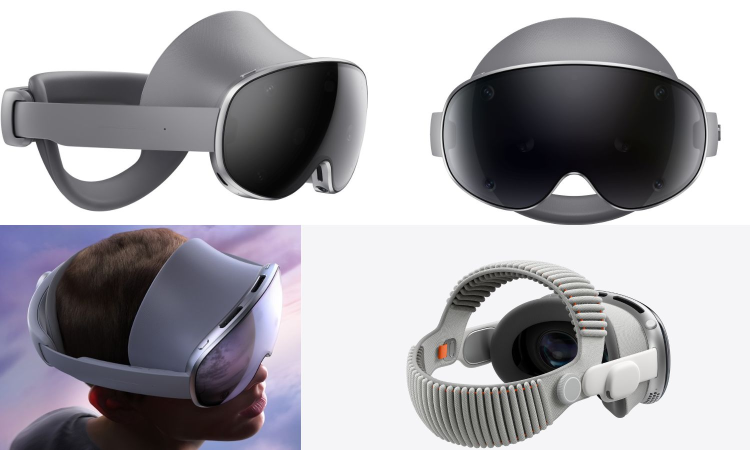DT Next Tech: Can Samsung’s new mixed reality headset shake up the category
Samsung’s new launch has piqued the interest of tech nerds all over including India.

Samsung’s new mixed reality headset
CHENNAI: Apple’s Vision Pro was supposed to the brand’s next big thing. But the sales figures and consumer adoption have been lukewarm to say the least. Now Samsung has entered the fray with its Vision Pro challenger. The Samsung Galaxy XR debuted in October 2025 at virtually half the price of Apple’s mixed reality headset and is currently available for purchase in the US and South Korea. Will the XR finally give this category some much needed impetus? That’s the USD 1,799 question.
It's been over two years since Apple unveiled the Vision Pro at WWDC 2023. AR or mixed reality headsets were billed as the next big thing with the iPhone making way for mixed reality by the 2030s. Analysts and industry observers spoke about a paradigm shift in our screen interactions that would move away from the ‘pinch and zoom’ era as we know it. Apple called the Vision Pro a spatial computer that seamlessly blends digital content with the physical world, while allowing users to stay present and connected to others.
Earlier in October 2025, Apple announced an updated version powered by the M5 chip. Oddly, it was about 150 gm heavier than its predecessor. The VR headset segment has grown rather modestly with Statista projecting a 4.06% CAGR (annual growth rate) from 2025 to 2030. While Apple hasn’t shared sales figures, most industry estimates project sales of about 500,000 units for the Vision Pro since its debut. The Vison Pro has been used effectively in pro settings like medical imaging, remote collaboration and architectural/construction visualisation.
The Samsung Galaxy XR presents the same value proposition as the Apple Vision Pro. Samsung has developed this along with Google (We are likely to see smart glasses powered by the Google XR platform) and Qualcomm. The Galaxy XR features dual micro OLED displays that deliver 4K resolution (3,552 x 3,840) to each eye at up to 90Hz (The Vision Pro offers a 120Hz refresh rate). It’s the same borderless screen that excited us about the Vision Pro and it can transform any space into a personal movie theatre with a screen and an advanced spatial audio system.
While both Apple and Samsung haven’t announced plans for a wider global rollout and India availably yet, Samsung’s new launch has piqued the interest of tech nerds all over including India. First it’s the price – USD 1,799 (About Rs 1.58 lakh) that is almost half the asking price of the Vision Pro – USD 3,499 (About Rs 3.07 lakh). The Galaxy XR is lighter than the Vision Pro and doesn’t feature an outward-facing display that projects your face onto the outside of the headset. The other big difference is the AI flavour.
The Samsung Galaxy XR becomes the first headset to run Google's new Android XR platform in its attempt to create a virtual playground. You get a host of familiar elements from the Google ecosystem with AI and Gemini-based voice controls. You can access YouTube videos (both 360 videos and standard videos that play out well on this device). The XR offers up to 2.5 hours of battery life and can be charged even as you use the device.
Samsung’s mixed reality headset certainly seems to have addressed some key deal breakers with Apple’s Vision Pro including the biggest one of them all – price.
The XR has stoked interest in a category that was gradually losing interest and also share of voice in the consumer tech space. Meta’s partnership with brands like Ray-Ban to create AR glasses seems to have generated more consumer interest also in part because of the its more affordable price point. The big challenge for the Samsung Galaxy XR is wider consumer adoption that still seems some distance away given the current price point. Will Mixed Reality glasses be the next big thing? We’re unlikely to get a definitive answer even in 2026.
(Ashwin Rajagopalan is a lifestyle writer and consumer technology expert. Catch the latest digital and tech updates in this weekly column.)



